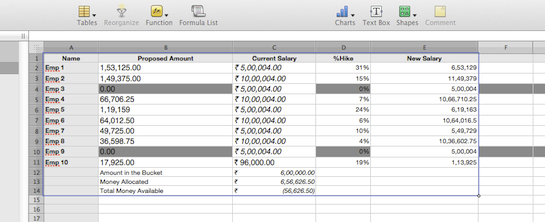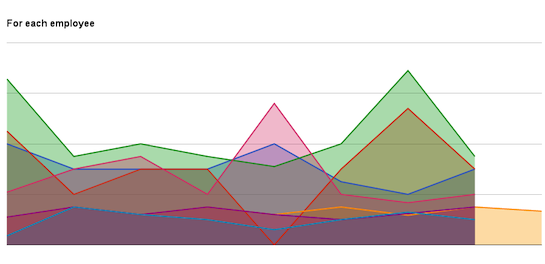Salary Reviews need not be black magic
When we started Activesphere we were very sure that we wanted to have a an open salary system, ie. everybody knows everybody’s salaries. We have stuck to it, and it seems to have worked well for us for the last 3 years. But come April of every year, we need to give hikes to people and it becomes really hard to figure out how to give hikes and who should get more and who should get less.
The problem with Salary Hikes
Lots of companies spend an enormous amount of time giving and collecting (meaningless?) feedback from employees just for the sake of giving hikes.
We disliked that approach and last year tried asking people what their individual salary should be? Most people (including me) were uncomfortable with that question, we eventually resorted to a straight 15% hike for all.
An Experiment
This year we tried something else, instead of some key people deciding the salaries for others, we asked each person to recommend how much others in the company should get.
We created a spreadsheet like in the picture (obviously the data is not real) and encouraged people to fill it for everybody. We decided the size of the Pot out of which the salary hikes would come, based on last years profits.

Everybody filled in the sheet, printed it and turned it in anonymously. (We are not sure if it was a good idea to keep it anonymous) People put their sheets in time without me having to remind them. This was strange because things are never done so quickly
We eventually chose to average the everybody’s recommended salaries for each person to arrive at the final salary.
Had we kept it non-anonymous, we could have ignored everybody’s numbers and kept what each person gave himself the salary, because as you might notice, we have subversively asked everybody what they wanted (since in giving others the salary you are eventually deciding yours too). We also could have used a version that gave higher weight to self salary recommendation but still use peers’ feedback. We are not sure if either one was better than the other. We’ll keep experimenting as there are different sub experiments to run from here

What have we learnt?
- There were great variations in percentage hikes. from between 33% to 10%. This proves that collectively we do not prefer all getting same hike percentages.
- Our individual numbers were pretty different from most other people’s. Proving If it was up to us(the commitee) we would have not given the right hikes.
- We spend far less time debating and discussing salary hikes for everybody.
In our opinion this has been the effective way of doing salary reviews. It is intimidating, because it democratizes the process of salary reviews, and it’s dead simple. We are fans of both.